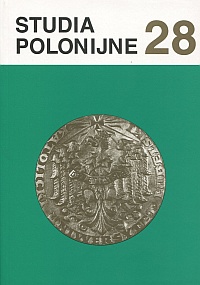Polonia Pastoral Care – the Scope of Action
Main Article Content
Abstract
The Catholic Church in the Polish territories was already at the turn of the nineteenth and twentieth centuries aware of the necessity to be more concerned about the pastoral care among our fellow citizens abroad. It was only in independent Poland that the state and church authorities could handle the issues of emigrants. The most important achievement of the inter-war period in emigrant pastoral care was to transmit the full spiritual authorities over the Polish emigrants to the Primate of Poland. Vice-Chancelleries of the Polish Catholic Mission (PCM) were established in order to provide permanent care for Poles in particular countries in agreement with respective episcopates.
Polonia in particular countries differs not only with regard to its number, but also structure and character of pastoral actions. In most countries the pastoral institutes are subordinate to PCM vice-chancellors. In Germany they have a greater autonomy and they are within the ordinary bishop's jurisdiction. They are less independent in Australia and the USA, where there is no superior organisational or managerial structure. Now in Brazil the pastoral care for Poles is associated with the local pastoral care. Everywhere, however, the church law demands on the part of a missionary that his pastoral care be ecclesial in character. The migrants in his charge felt they were members of their diocese and of the universal Church. The posts of Polonia pastoral care do not embrace all Polish emigrants. Because of an immense dispersion of Poles and the lack of Polish priests our emigrants in some countries are cared for by local priests.
Polish pastoral posts played a special role in the years of martial law in many big cities of the states of West Europe. They became centres of Poles' life outside their Homeland. They not only sought a pastoral ministry in their mother tongue, but also expected their various needs to be satisfied. The priest himself very often became a mediator with the remaining family in the country, helped in finding and joining their families, transmitted correspondence, and served as a contact point. He participated in job mediation or helped to find a flat, to complete all formalities concerning their departure. He was forced to provide legal counsels and explain the decisions of the lay authorities, translated official letters, organised material aid for the immigrants and, together with them, for their families in the country. In that period the pastoral care in the camps for refugees waiting for political asylum in a foreign country was particular important.

